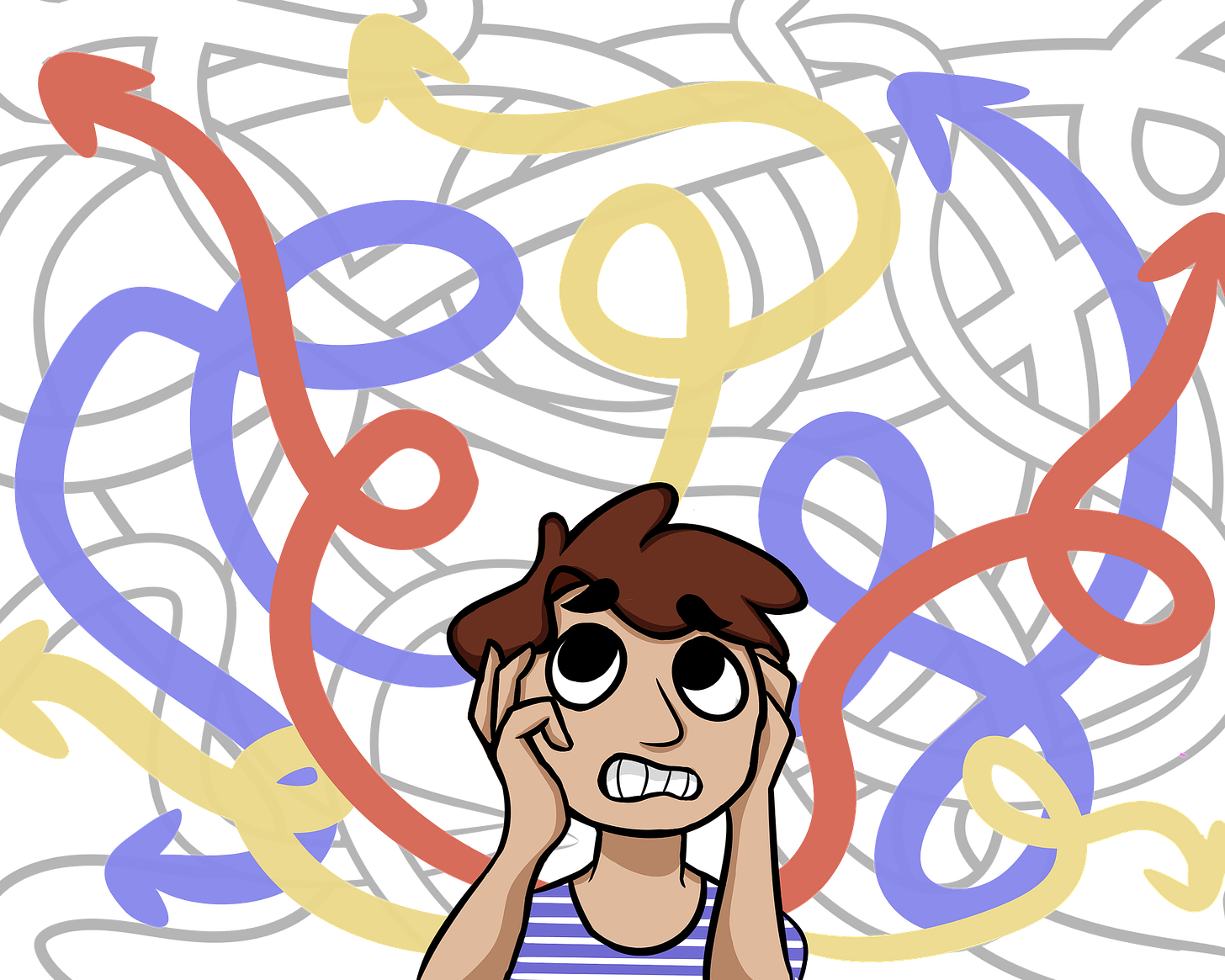Expert tips and 'into the shoulds'
Expert tips for your improv journey in 2024, and an exploration of one single word
Expert tips
Dave Pasquesi, Patti Styles, Rob Norman, Kathy Rinaldi and Colin Mochrie - some expert tips for a new year.
I’ve been going over some old and some new material I’ve recorded and come up with some great tips for 2024 from some great improvisers. Listen now to hear what they have to say.
Into The Shoulds
When it comes to language, people don’t like being told what to say so I’m not going to do that. I don’t want to tell you what words you should use because the word “should” can lead to some interesting emotional responses.
On a host of different coaching courses I’ve attended and a number of different language-related articles I’ve read, the word “should” has been analysed countless times. I did a casual search of my emails and my notes app and, it turns out, I use the word way more than I “should” have done, given the coaching I’ve had around its use.
The response you get to the word “should” might not always be what you intend it to be, so I figure an exploration into the word “should” might help some of us make a more informed choice about whether you use it or not in our improv practice.
Much of these thoughts have come from coaching and facilitation trainings I’ve done over the past 20 years. I’ve been fortunate to work for a number of national media brands where I have coached broadcast talent, and they sent me on a good few courses. I’ve also invested in some coaching and facilitation courses that also explored this subject.
What does the word “should” do?:
Should indicates an obligation to act Should puts the user of the word in a position of authority in the minds of some receivers Should can come across as a moral judgement rather than practical suggestion
Let’s say someone has had a scene not go as well as they’d like and you’re coaching them. You are pretty sure the scene could have been better if both players had been more specific about things. What could you offer as feedback? A) What you should have done is been more specific B) One thing you could have done is added more specifics C) Think about the scene for a second and imagine what it would have been like with more specifics
My chosen option is usually C but occasionally B. To my taste, A is moralising about the scene and suggesting that there is only one choice. If you were in that scene, how would you have felt about those three different pieces of direction if they were given to you? Does one feel more like it’s shaming you than the others? One of them feels like that to me, but I’m not you!
Let’s say you want people to like and share things a team or certain teams do on social media or you are keen that they attend shows in order to see new things. Which phrases do you think would work best? A) You should be supporting other people’s shows B) You could support other people’s shows C) Have a think about supporting other people’s shows and what it would be like if other people did that for you too
Again, B and C work for me in different situations but I don’t like telling people what they should do. When I’m telling people what they “should” do, I feel it’s putting me in a position of moral authority over other people’s lives which I do not feel I have. It also suggests I know the details behind their reasoning and disagree with it. When I suggest options rather than obligations I allow people to make their own choices and, I hope, it allows me to be heard too.
Whether it’s coaching on stage or off stage, in my experience when we go into the shoulds, we can inadvertently end up achieving the opposite of our intentions.
However, the most dangerous “should” is the one we use on ourselves. I noticed that most of the “shoulds” that I had in my emails and my notes were related to myself. I was writing down what I “should” be doing. The judgement we place upon ourselves is often incredibly onerous in improv. We believe we “should” be a certain standard. We believe we “should” have been better in certain shows. We can be our own worst critic and we are should-ing over our own work in a counterproductive way.
I’m interested to know how we appropriately and constructively explore improv more as teachers, performers and collaborators better in 2024. I’d love to know your thoughts.
What else is happening?
Some Black People, a new, all-black improv team, has their debut show on Saturday, January 20, at the Improv Shop in St Louis Missouri, USA. The team came about when Jessica Silas started taking classes two years ago and realised all the improv groups around her were predominantly white. Read more here: https://www.riverfronttimes.com/arts/some-black-people-seeks-to-show-improv-is-for-anyone-41539732
More organisations and institutions realising that improv has practical benefits. This article is about the improv training the police department in Delaware USA have had:
https://www.inquirer.com/transportation/delaware-river-port-authority-police-training-improv-theatre-20240101.html
And this lovely video about how David Rysdahl’s improv background made him a better actor:
https://mashable.com/video/fargo-installment-5-fx-david-rysdahl
Have a great week,
Lloydie





For many years in my teaching for business groups, I've been discussing the differences between "should" and "could". There can be occasions when Should is appropriate. ("You could consider the feelings of your team when discussing risky topics" doesn't have the same power as "You should...") But in some of those situations, your option C "would" be an excellent option. That's a new one for me and I'll remember it — thanks!
Also, it's a brilliant observation that we "should" ourselves far more than we do others. Important to remember we can give ourselves the same options.